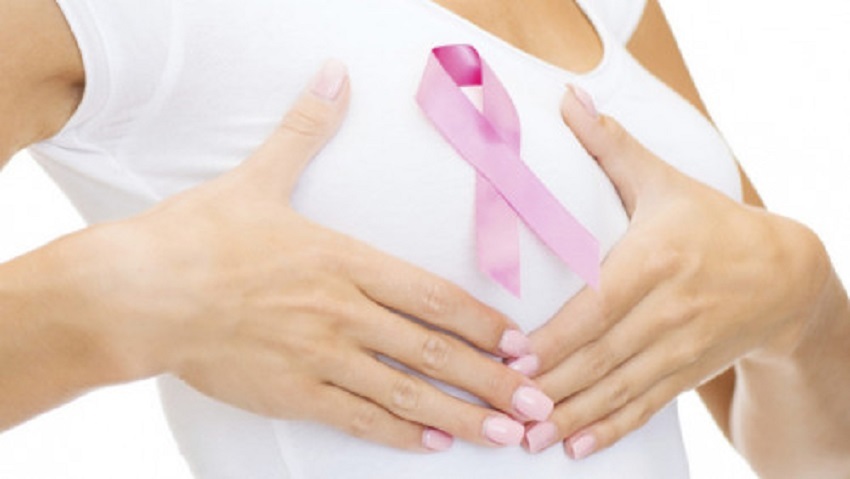Cancer

Cancer in pregnancy
Introduction
The simultaneous occurrence of cancer and pregnancy is rare with a reported incidence of 0.07% to 0.1%. When it does so, it may be necessary to perform surgery or to prescribe chemotherapy or radiotherapy. Surgery can, and frequently is, performed without undue difficulty on a pregnant women. This treatment is never withheld from expectant mothers who need it.Pregnant women with cancer are treated the same way as non-pregnant women with the same conditions. Numerous studies have shown over and over again that the outcome for pregnant women with cancer is no different than that of women who are not pregnant, when matched for age, stage and cancer type.
Incidence of Cancer
The incidence of women who develop cancer while pregnant is, internationally, increasing. This is partly because more women are having their first baby in their late 30's. Here in Ireland, for example, the number of women under 50 who developed cancer of the breast increased from 451 in 2000 to 600 in 2007. If one accepts international statistics, one would expect 60-70 women to develop cancer while pregnant every year in Ireland. Naturally in such cases concern the outcome for the baby is foremost in parents' minds, and the modern irrational fear of abnormality or imperfection leads some to contemplate euthanasia by abortion. In countries where abortion is freely available, some oncologists will even refuse to treat a pregnant woman before she has had an abortion. We do not want this to happen in Ireland. Availability of abortion could very well do that, where women are forced to have an abortion before they can get treatment.
While large statistically significant medical studies of the outcomes of pregnant women with cancer are not easy to come by, the studies that do exit show that, in cancer cases, abortion will not improve or treat the mothers' outcomes.
One enormous landmark study published in the Clinical Journal of Oncology in 2002 looked at 42,511 women and found no inter group differences for cause-specific death between pregnant and non-pregnant women. In other words, pregnancy did not make any type of cancer worse. They also found pregnancy a protective factor for women diagnosed with cancer after pregnancy.
Another study looked at a cohort comprised of 185 women diagnosed with melanoma during pregnancy and 5,348 women of the same childbearing age diagnosed with melanoma while not pregnant. There was no statistically significant difference in overall survival between pregnant and non-pregnant groups.
So the real question is how much, if any, harm will be done to the baby in her womb. Once again, we see the constant phenomenon of the morally good being consistent with the temporal good. Studies show that the risk to unborn babies of mothers being treated for their cancers do surprisingly well. In one international collaborative setting, patients with invasive cancer diagnosed during pregnancy between 1998 and 2008 were identified. Clinical data regarding the cancer diagnosis and treatment and the obstetric and neonatal outcomes were collected and analyzed. Of 215 patients, five (2.3%) had a pregnancy that ended in a spontaneous miscarriage and 30 pregnancies were interrupted. Treatment was initiated during pregnancy in 122 patients and postpartum in 58 patients. The most frequently encountered cancer types were breast cancer, hematologic malignancies, and dermatological malignancies. Delivery was induced in 71.7% of pregnancies, and 54.2% of children were born preterm. In the group of patients prenatally exposed to cytotoxic cancer treatment, the prevalence of preterm labor was increased but there was no increased incidence of congenital malformations.
Another Belgian 2009 study states unequivocally that "cancer complicating pregnancy endangers two lives. Any approach should look at both maternal and fetal safety. Maternal prognosis will not improve by terminating the pregnancy ...Chemotherapy during the second or third trimester can be administered without increasing the incidence of congenital malformations."
The last thing a pregnant woman with cancer needs is pressure on her to have an abortion.
She needs the best possible treatment for herself and her unborn baby from an obstetrician also trained in oncology. Or from an oncologist in collaboration with an obstetrician who is concerned for the welfare of her unborn baby. She also needs support from one of the many cancer support groups.

Effects on the Unborn Child
Some women will ask to delay some treatments until such a time as the baby is unlikely to be adversely affected by such treatment. The unborn child has developed all its organs and limbs by the 12th week of pregnancy.
Hence chemotherapy can be given to a woman in the second and third trimester without causing any abnormality in the unborn child.
With judicious selection of chemotherapeutic agents pregnant women can be treated even in the first trimester. Some drugs cannot cross the placental barrier, some others appear not to cause malformations. If the folic acid antagonists are excluded the incidence of congenital malformation is 6% for single agents. Fortunately, methotrexate, the principal folic acid antagonist used, is not part of any curative regimen for which a therapeutically equivalent substitute is lacking.To optimize the efficacy of radiotherapy for cancer patents who are pregnant, the following factors must be considered: the potential effects of the therapy on the unborn child, the stage and prognosis of the mother's disease and the possible risks to the patient of restricting cancer treatment. The risk to the unborn is negligible if the fetal exposure does not exceed 0.1Gy. Where cure is a realistic goal, therapy should not be modified in such a way as to compromise its achievement. If there is no hope for cure or even significant palliation, the primary goal may become the protection of the fetus from any harmful effects of anticancer therapy and the delivery of a healthy infant. Therapy should be individualized for each patient and patient choice must be respected.
Cancer of the Womb
In the rare case of cervical cancer in pregnancy, it is usually necessary to immediately perform a hysterectomy to remove the cancerous womb of the mother. This hysterectomy is not, and has never been considered by medicine or by the law, as an abortion.Abortion could do nothing to treat the diseased womb. The desired effect is the removal of the diseased organ; the undesired side effect is the early removal of the baby. The same treatment would be given to a non-pregnant woman with a cancerous womb.
Abortion does not treat Cancer
What is it?
Although cancer in pregnancy is relatively rare it unfortunately can and does occur. The major malignancies complicating pregnancy include those of the breast, the reproductive tract and those of the hematological system (blood). Breast cancer is the most common malignancy in pregnancy and approximately 2% of breast cancers occur in pregnancy. A review of the literature would suggest that, in general, the prognosis for pregnant women is the same as the non-pregnant population. The European Registry puts Uterine and Cervical cancer at about 20% of all cancers in pregnancy. Just like the non-pregnant population, ovarian cancer is extremely rare in childbearing years. Hematological malignancies are the second most common cancers that complicate pregnancy. These include the leukemias and lymphomas.
Chemotherapy drugs are potentially curative however these may have a harmful effect on the baby.
What causes it?
Cancer is a complex group of diseases with many possible causes. It causes abnormal cells to grow uncontrollably and do not die. Genetic factors, exposure to certain substances, a family history and other medical factors such as viruses and immunodeficiency can all be risk factors for developing cancer.
How is it treated?
There are a number of ways to treat cancer and the treatment options will depend on the type of cancer, how advanced the cancer is and the physical health of the patient. The aim is to remove the cancerous cells while making sure that the cancer does not grow back. The main techniques to treat cancer are; surgery, chemotherapy and radiotherapy. Other modalities would also include immunotherapy and the use of certain antibodies.
What about in Pregnancy?
When making treatment decisions for cancer during pregnancy, the doctor considers the best treatment options for the mother and possible risks to the baby. The type of treatment given will depend on many factors, including gestational age of the baby, the type, location, size and stage of the baby. Cancer treatment is not incompatible with pregnancy. Treatment generally takes a multidisciplinary approach involving, obstetricians, maternal-fetal specialists, oncologists and surgeons if indicated.
Breast Cancer
Most patients with concurrent breast cancer and pregnancy learn that they are pregnant before they are diagnosed with cancer, however the standard of care in Ireland is the same for pregnant women as for non-pregnant women. Diagnostics including mammography and ultrasonography of the breast can be used in pregnancy to diagnose suspicious lumps. Although the dose of radiation is negligible, measures can be taken to protect the baby from exposure. If imaging suggests a mass may be cancer, a biopsy of this lump can also be performed safely in pregnancy.
After the first trimester, pregnant women can receive a standard chemotherapy regimen for breast cancer with the usual agents given to a non pregnant woman, including 5-fluorouracil, doxorubicin and cyclophosphamide.
Surgery can also be done safely during pregnancy; as in non-pregnant patients, pregnant women typically undergo mastecomy, partial mastectomy or lumpectomy before or after chemotherapy.
Doctors typically prefer not to administer radiation therapy during pregnancy because of the proximity of the breast to the baby, however recent research suggests that radiotherapy is safe during the first and second trimester. As in non-pregnant patients however, radiotherapy is typically given after chemotherapy and surgery and by that time the baby is usually delivered.

Uterine and Cervical cancer
Endometrial or uterine cancer is rare in pregnancy. Active treatment of uterine cancer is incompatible with pregnancy as there are instances when a woman’s uterus will need to be removed for curative management. In invasive cancer, radical treatment including hysterectomy, radiotherapy, or a combination of both, may be necessary to save a woman’s life. In advanced disease that is not amenable to removing the uterus, high dose radiotherapy may be administered which may cause spontaneous miscarriage. Hysterectomy and radiotherapy in these situations is administered with curative intent.
In Ireland there is absolutely no medical evidence to suggest that clinicians do not treat uterine cancer on grounds that that treatment would damage the unborn child. The treatment for cancer is clearly not an abortion even when a hysterectomy is performed.
Irish Obstetricians recognize that in these circumstances there are two patients involved; sometimes the treatment may involve early induction of labor so that active management can be pursued. In these cases, every effort will be made to support the life of the baby.
Professor John Bonnar explains what happens in Irish Obstetrical practice:
“There are other situations and I have personally had to deal with these because I have had a special interest in gynecology malignancy. A mother, for example, may have cancer of the cervix and she may present in the first half of pregnancy, she may present at 12 weeks. Then we find to our great consternation that there is a cancer there and we have got to go ahead and deal with that, we have got to treat it. I have had to do the operations. We have got to remove the uterus. That means certainly the baby cannot survive. I think we are doing the same procedure as we would do if she wasn’t pregnant. We have never regarded these interventions as abortion”
Hematological malignancies: these blood disorders including leukemia and lymphoma are relatively uncommon but can occur in pregnancy. Women diagnosed with leukemia in pregnancy need a careful oncological work-up as well as close monitoring of the pregnancy until delivery and beyond. Patients with acute leukemia normally should receive anti-leukemic treatment at full dosage prior to delivery, except for some women diagnosed very close to term. The prognosis of pregnant women with acute leukemia corresponds to that of an age-matched and diagnosis-matched non-pregnant patients, provided appropriate treatment is given. If given as of the second trimester, the typical chemotherapy regimes used imply acceptable toxicities to the fetus, no clear evidence of late in children and adolescents who were exposed to cytostatic agents whilst in utero. In chronic leukemia treatment may often be delayed until after delivery. Obstetric care and monitoring of women with leukemia are essential throughout the pregnancy to ensure the best possible outcome for mother and child.
Where is the Evidence?
Dr Frédéric Amant has been descried by the Lancet Journal as “leading the agenda on cancer in pregnancy” for his work on treating cancer in pregnancy. He published a series on malignancy in pregnancy in the Lancet and Lancet Oncology. In this series he describes how chemotherapy and radiotherapy can be delivered in pregnancy and he followed these children for an average of 22 months after delivery.
His ground breaking research concluded that in the case of cancer complicating pregnancy:
- Termination of pregnancy does not improve maternal prognosis
- Maternal prognosis is similar to the non-pregnant state
- Oncological surgery appears to be safe
- Chemotherapy is safe after the first trimester
- Radiotherapy is safe during first and second trimester
Speaking at an International Maternal Health Symposium in Dublin this year he stated that his research should have the clinical implications of less terminations of pregnancy and less delay of maternal treatment.
- Breast cancer in pregnancy Lancet. 2012 Feb 11;379(9815):570-9.
- Long-term cognitive and cardiac outcomes after prenatal exposure to chemotherapy in children aged 18 months or older: an observational study Volume 13, Issue 3, Pages 256 - 264, March 2012
- How I treat acute and chronic leukemia in pregnancy Blood Rev. 2008 Sep;22(5):247-59. Epub 2008 May 9.
- Successful Pregnancy and Delivery in a Patient with Chronic Myelogenous Leukemia (CML), and Management of CML with Leukapheresis during Pregnancy: a Case Report and Review of the Literature Jpn. J. Clin. Oncol. (2004) 34 (4): 215-217.
What the experts say
Lancet reports that Chemotherapy is safe during pregnancy.
As was reported in the Independent, 10 February 2012, women diagnosed with cancer during pregnancy can now be treated and it is possible to save both.
A series of studies published in The Lancet and Lancet Oncology shows that children born to women given chemotherapy while they were growing in the womb developed as well as children in the general population. About one in 1,000 pregnancies is affected by cancer and in the past women have faced a terrible choice: delay treatment until the baby is born, putting their own life at risk, start treatment while pregnant and risk damaging the baby, or terminate the pregnancy.
Now the trend is to preserve pregnancy wherever possible and the evidence shows the outcomes for mother and baby are good. Chemotherapy involves administering toxic drugs to kill the cancer but which also kill healthy cells in the mother's body. Its effects on the fetus have been unclear but a study of 68 women who each had three to four cycles of chemotherapy during pregnancy showed their children were unaffected.
Tests of cognitive ability on the children were "within normal ranges", the researchers from Leuven Cancer Institute in Belgium say. Only those born prematurely had lower scores of cognitive ability but the researchers say this applies in the general population too.
"Our findings do not support a strategy of delay in chemotherapy or [induced] pre-term delivery with [subsequent] chemotherapy to avoid harm to the fetus," the authors write.
In a second paper, researchers from the Institut Gustave Roussy say women must not have chemotherapy in early pregnancy when it can harm the fetus but from the second trimester (12 weeks) onward evidence shows it is safe. "The use of chemotherapy during pregnancy helps increase the chance of foetal preservation. Children exposed to chemotherapy in utero after the first trimester do not seem to have more congenital abnormalities," the authors say.
Read more of the article in the Independent here
Prof. John Crown
Prof John Crown tweeted on the 21st February 2012 that "Must say I don't think I ever had a case where abortion was necessary to save mom."
Prof. James Fenelly
A cancer specialist Prof. James Fennelly, stated (Irish Times, 29/6/1992) that "there is no evidence that pregnancy makes cancer worse. There is no evidence that termination of pregnancy makes cancer better. All the necessary treatment can be given under specialized management." He quotes in detail which anti-cancer drugs can be used in different types of cancer (including breast cancer, leukemia, melanoma and brain tumors) without the risk of producing a deformed baby. There is a possibility that the disease or treatment may cause a miscarriage or lead to an underweight baby, but this is very different from killing the child through abortion.

Evelyn O'rourke
'Did you know you can have chemo safely in pregnancy? Well, neither did I...'
Broadcaster Evelyn O'Rourke on her remarkable journey from cancer diagnosis to the birth of son Ross.

Jillian O'Connor

An Ottawa mother, pregnant with her third baby, Jillian O’Connor has been diagnosed with stage four breast cancer. She will be induced on February 1st after an emotional pregnancy that started with a lump in her breast when she was 16 weeks pregnant. She found it while she was breastfeeding her one-year-old son. The couple also has a 3-year-old daughter. She was sent to the Cancer Centre at The Ottawa Hospital where she met with medical oncologist and cancer researcher Dr. Mark Clemons.
Read more here about this great treatment....
References / Sources
1. Cancer During Pregnancy: An Analysis of 215 Patients Emphasizing the Obstetrical and the Neonatal Outcomes.Journal of Clinical Oncology (JCO) Feb 1, 2010:683-689; published online on October 19, 2009; DOI:10.1200/JCO.2009.23.2801
2. Gynaecologic cancer complicating pregnancy: An overview. Best Practice & Research. Clinical Obstetrics & Gynaecology, Sept 7, 2009.
3. Treatment of pregnancy-associated breast cancer. Expert Opinion on Pharmacotherapy, Oct 10, 2009 (14):2259-67.
4. Gynecologic cancers in pregnancy: guidelines of an international consensus meeting.Division of Gynaecologic Oncology, Department of Obstetrics & Gynaecology, Leuven Cancer Institute (LKI), UZ Gasthuisberg, Katholieke Universiteit Leuven, Belgium.
5. Cause-Specific Survival for Women Diagnosed With Cancer During Pregnancy or Lactation: A Registry-Based Cohort Study.Journal Clinical Oncology Jan 1, 2009:45-51; published online on November 24, 2008; DOI:10.1200/JCO.2008.17.4110
6. Effect of Pregnancy on Survival in Women With Cutaneous Malignant Melanoma. Journal of Clinical Oncology, Nov 1, 2004:4369-4375; DOI:10.1200/JCO.2004.02.096
RCOG says breast cancer is treatable during pregnancy
In late 2014 the RCOG published new patient information outlining details for women who are pregnant and have been diagnosed with breast cancer, or who have recovered and are planning a family.
Philippa Marsden, chair of the RCOG Patient Information Committee, said: 'It is important to emphasize that breast cancer during pregnancy is rare, with 1.3 to 2.4 cases per 10,000 live births.
'Being diagnosed with breast cancer whilst pregnant can be extremely frightening. However, a specialist team including a consultant obstetrician, midwife and breast team will look after a woman throughout her pregnancy and ensure the best possible outcome for both mother and baby.'
Links
Professor tells conference women while pregnant with cancer do not need to terminate pregnancy